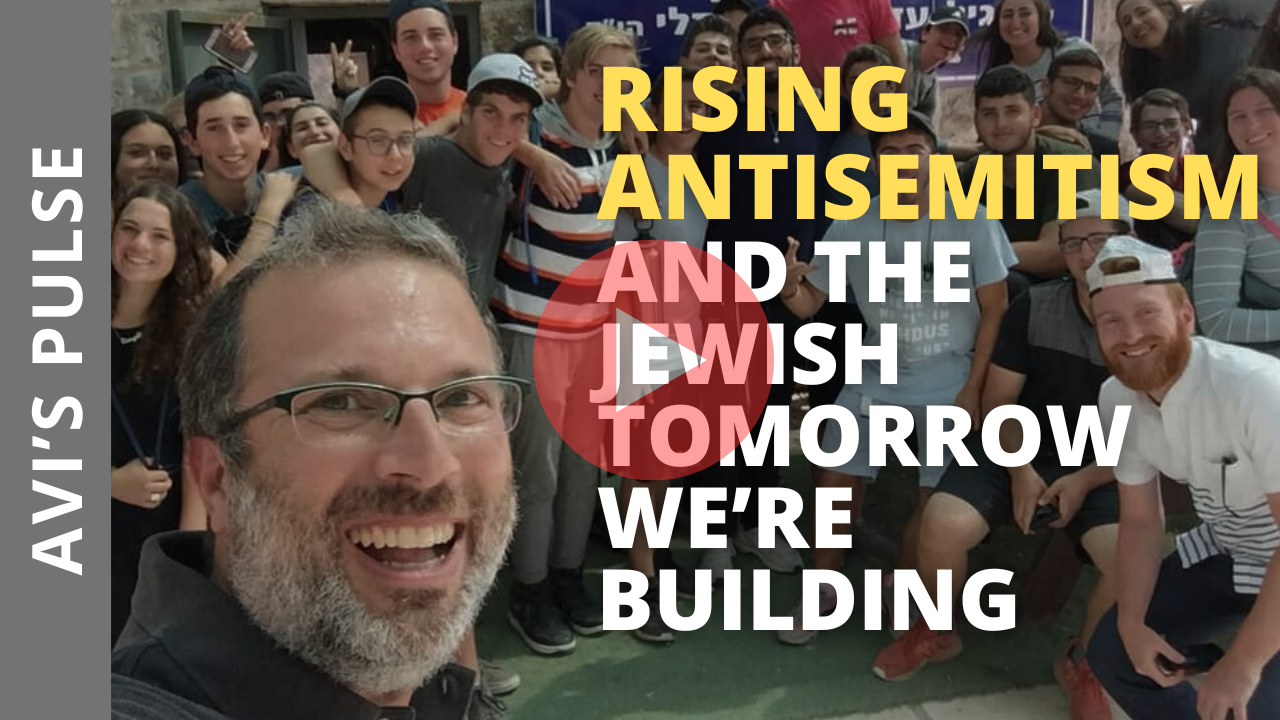It pains me to have to call out any Jew who has cast his or her lot in the camp of a candidate whose positions on Israel are so visceral and one-sided.
(July 10, 2025 / JNS)
As I read in a Times of Israel blog on July 5, “We are NYC rabbis who support Mamdani: Here’s why,” by Rabbi Rachel Goldenberg and several of her rabbinical colleagues, I felt a deep ache in the pit of my stomach. I debated whether to respond to the piece at all, recalling the Talmudic story of Kamtza and Bar Kamtza, a cautionary tale in which scholars explain that the Second Temple was destroyed because of sinat chinam, “baseless hatred” between Jews.
I bear no ill will toward the rabbi or the other signers. On the contrary, I am saddened, deeply saddened, that these Jewish leaders have chosen to endorse and publicly embrace a mayoral candidate who, in rhetoric and associations, has fueled the flames of antisemitism and the vilification of Israel.
Let me explain.
As a former New Yorker (who still roots for the Yankees), and a proud Jew and Zionist, it pains me to have to call out any Jew who has cast his or her lot in the camp of a political candidate whose statements and positions on Israel are so visceral, so unyielding and so one-sided.
New York State assemblyman Zohran Mamdani, the Democratic candidate for mayor of New York City, has aligned himself with causes and slogans that go far beyond legitimate criticism of Israeli policy. In college, he co-founded a chapter of Students for Justice in Palestine, a group that routinely demonizes Israel and has justified Hamas terror.

He has gone so far as to accuse Israel of genocide, a charge that is blatantly false and inflammatory. Such rhetoric not only distorts history but fans the flames of antisemitic hatred and division.
Mamdani has refused to unequivocally condemn violent calls to “globalize the intifada,” a phrase that, for many Jews, evokes memories of suicide bombings, murdered civilians and a campaign of terror that has scarred an entire generation.
That Mamdani has said the phrase “means different things to different people” is not a clarification; it is an evasion.
And that evasion is not an isolated incident. In the New York State Assembly, 145 out of 150 members signed at least one of two bipartisan resolutions—one commemorating Israel’s anniversary, the other condemning the Holocaust. Mamdani was one of just five assembly members who refused to sign either.
His record of inflammatory statements goes back even further.
As a rap singer in 2017, Mamdani praised the Holy Land 5, criminals who were convicted in 2008 of providing material support to Hamas terrorists. Elevating those who aided a terrorist organization undermines public trust and erodes any claim to moral leadership.
Equally troubling is his refusal to affirm Israel’s right to exist as a Jewish state. It reminded me of a meeting I once had with a leader of our local Jewish federation and a representative from the Council on American-Islamic Relations (CAIR). During that meeting, I asked the CAIR leader if he would publicly state that Israel has a right to exist as a Jewish state. He replied, “Rabbi, every country has a right to exist.” I asked again more directly and received the exact same answer.
Afterward, I called the federation leader and respectfully asked that I not be invited again to meetings with someone who refuses to acknowledge the legitimacy of our Jewish homeland.
Regrettably, Goldenberg’s piece fails to seriously engage with the pain such associations cause for the Jewish community. There is no recognition of the deep sense of betrayal felt by Jews who expect our leaders, especially our rabbis, to preserve and safeguard the well-being of the Jewish people.
This isn’t about “litmus tests,” nor is it about silencing criticism of Israel. It is about recognizing that when rabbis or Jewish communal leaders align themselves with those who deny Israel’s right to exist as a Jewish state, who excuse or minimize antisemitic rhetoric or who celebrate movements that call for its destruction, when they support such a candidate for public office, it is not a moral act. It is moral negligence, and it carries a cost we cannot afford. It threatens the very fabric of our community.
The authors claim they were “kvelling” over Mamdani’s victory, but I wonder, were they equally moved by the anxiety now felt by so many Jews in the five boroughs who hear chants on city streets comparing Israel to Nazis, or calls for intifada echoing from college campuses and the steps of City Hall?
That anxiety is not abstract. New York City is home to the largest Jewish population outside of Israel. What happens in New York reverberates across the Jewish world.
I truly believe we must build coalitions, engage across differences and uphold our concern for shared dignity and human rights. But when coalition-building means ignoring threats to our community or excusing those who foster or enable hateful rhetoric, it becomes complicity in the normalization of antisemitism.
I pray that when New Yorkers go to the voting booth in November, they demand leadership courageous enough to confront hatred and division—and reject candidates like Mamdani, no matter how enticing the promise of “making history” may be.
To Rabbi Goldenberg and her rabbinic colleagues: I earnestly ask you to think again. Remember the generations of Jews who came to New York City seeking refuge. Remember the Israeli children who endure sirens, rockets and having to sleep in bomb shelters. The wounds, old and new, are deepened when our Jewish communal leaders praise someone whose words fuel the flames of Jew-hatred.
Rabbis hold a sacred trust. Our communities look to us for wisdom, guidance and moral clarity.
I hope Rabbi Goldenberg and her colleagues will reflect on the impact of their endorsement and reaffirm their responsibility to protect what generations of Jews have struggled to preserve: our people, our Jewish homeland and our enduring legacy. The safety and future of Israel and the Jewish people demand nothing less.

 Whatsapp
Whatsapp




